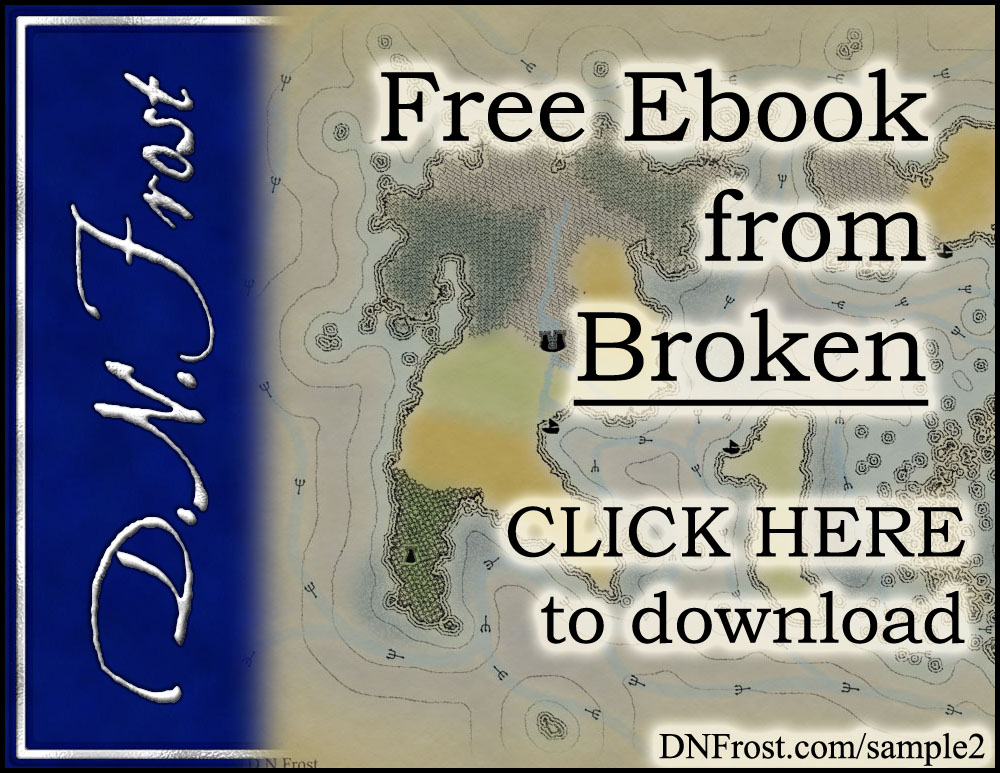This post is part of a series to augment the Book Reviews by D.N.Frost available for free download.
This and other reviewed content is gathered in my Book Reviews Directory for you to explore.
Find more post tag introductions in my Spark Directory.
I only review books I like. If I'm not recommending a book, I'm not going to waste time talking about it. I would definitely watch the movie version of every single book I review.
They're all good books. But most people tend to give everything five stars, which skews the ratings and damages reviewer credibility over time. So this is how I apply star ratings to my book reviews:
★★★
Three stars! This is a good story, well-crafted and entertaining.
Three stars is the basement floor, good books that I honestly enjoyed.
These are books that I think other people might like.
I found them fun, interesting, and entertaining, and I want other people to read them.
★★★★★
Five stars! This great story delivered something I've never seen before.
Five stars is the ceiling, reserved for amazing excellence that really blew me away.
These are books I devoured and would read again this year.
I've never seen anything like them, and I was really impressed with the whole experience.
★★★★
Four stars! This great story revealed something I didn't see coming.
Four stars is the middle ground, great stories that surprised me with engaging twists and turns.
These are books I loved reading.
I would read more by these authors, and I might even sign up for updates.
Check out these Book Reviews by D.N.Frost for more story ratings!
Given only three ratings to work with, I wanted to add in some extra layers. My five star rating is pretty rare, so my four star rating covers practically all the great books I've read. Some of them aren't even the genres or subject matter I like best.
So instead of adding layers via half stars (and coming up with new critera for each rating), I settled on using a visual way to differentiate book genres within each rating:
Though I might award the rare five star rating to a book outside of what I would normally read, it felt silly to divide them into two categories.
I want my five star rating to shine on its own, reserved solely for books that I'd heartily recommend to any reader, regardless of subject matter. To preserve this quality of endorsement, I opted against creating a five star variant with silver stars.
That's it for this post! Check out the latest book reviews for more.
Download Book Reviews by D.N.Frost here, or start your adventure below.
This and other reviewed content is gathered in my Book Reviews Directory for you to explore.
Find more post tag introductions in my Spark Directory.
I only review books I like. If I'm not recommending a book, I'm not going to waste time talking about it. I would definitely watch the movie version of every single book I review.
They're all good books. But most people tend to give everything five stars, which skews the ratings and damages reviewer credibility over time. So this is how I apply star ratings to my book reviews:
★★★
Three stars! This is a good story, well-crafted and entertaining.
These are books that I think other people might like.
I found them fun, interesting, and entertaining, and I want other people to read them.
★★★★★
Five stars! This great story delivered something I've never seen before.
These are books I devoured and would read again this year.
I've never seen anything like them, and I was really impressed with the whole experience.
★★★★
Four stars! This great story revealed something I didn't see coming.
These are books I loved reading.
I would read more by these authors, and I might even sign up for updates.
Check out these Book Reviews by D.N.Frost for more story ratings!
Given only three ratings to work with, I wanted to add in some extra layers. My five star rating is pretty rare, so my four star rating covers practically all the great books I've read. Some of them aren't even the genres or subject matter I like best.
So instead of adding layers via half stars (and coming up with new critera for each rating), I settled on using a visual way to differentiate book genres within each rating:
Though I might award the rare five star rating to a book outside of what I would normally read, it felt silly to divide them into two categories.
I want my five star rating to shine on its own, reserved solely for books that I'd heartily recommend to any reader, regardless of subject matter. To preserve this quality of endorsement, I opted against creating a five star variant with silver stars.
That's it for this post! Check out the latest book reviews for more.
Want a review of your own book? Check out my Services for Authors.
You deserve a mindful reader and an honest book review.
You deserve a mindful reader and an honest book review.
Download Book Reviews by D.N.Frost here, or start your adventure below.
Liked this? Share, please!


